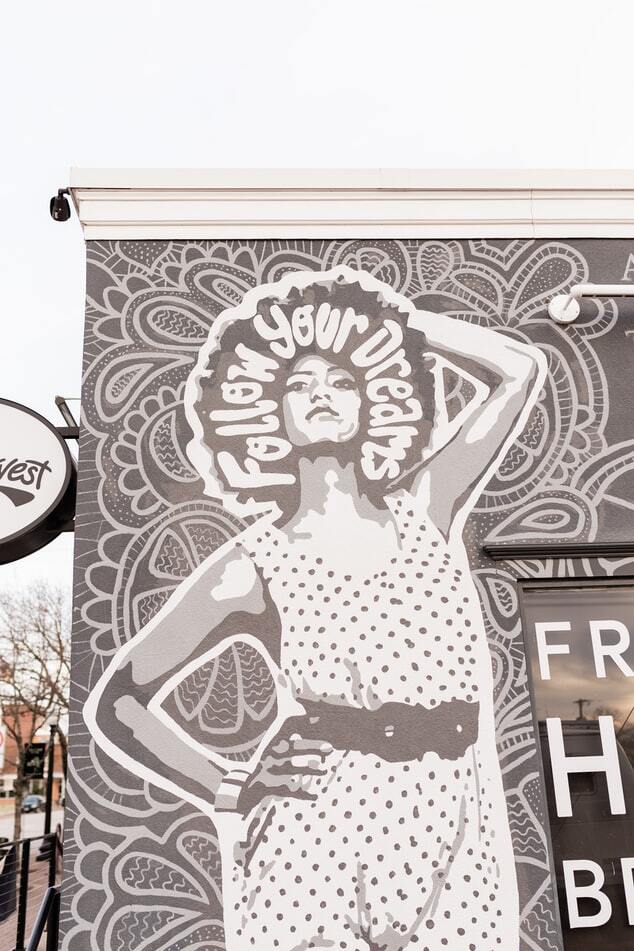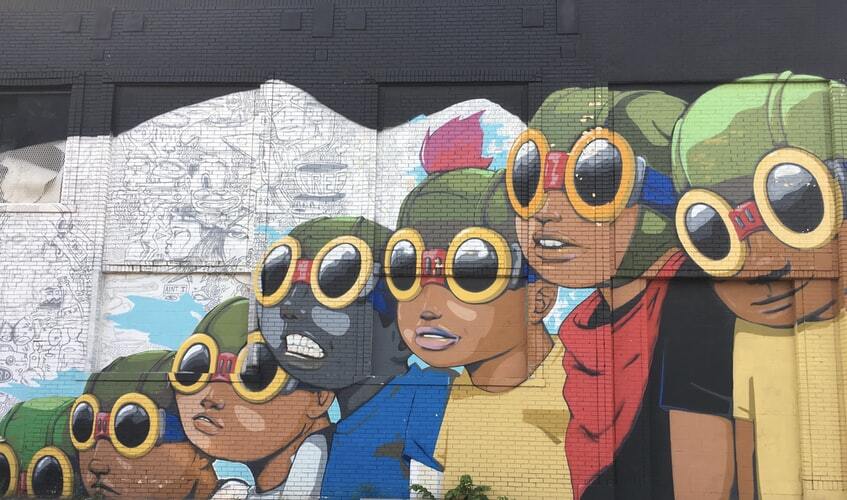By Emily-Rose Njonde
Posted on January 28, 2022
Blackness is cool. Kinda. At least, the Black aesthetic is. We’ve seen entire industries built off the labour of Black people. And yet, the highest-earning executives from these fields hardly ever are Black themselves. Black people just get to be the faces. All around the world, Black creatives have proven to be tastemakers in a wide array of industries, and executives know and exploit that.
TikTok is a prime example of this, as most of the dances and trends on the app originate from Black creatives. However, the most popular people on the platform that are given the visibility to present these creations are white. While Blackness is cool and trendy, it is still not marketable or palatable to the masses. A prime example of this is one of the platform’s biggest creators, Charlie D’Amelio. While I do not deny that she is a talented young lady, her platform consists almost exclusively of performing dances created by others. One of the dances that made her rise to fame, the ‘renegade’ was in fact created by Jalaiah Harmon, a 14-year-old Black girl from Atlanta who only got recognition due to the Black community’s outcry on social media.

Corporations only seem to include Black creators if they are forced to do so. One example is, when Addison Rae was invited on to The Tonight Show, and performed a series of dances, none of them created by her, without crediting the originators. It was only once the internet got upset about this that the show had all the original creators perform virtually. Black inclusion seems to constantly be an afterthought for most big companies, and is only considered as a reaction to criticism.
Despite being the curators of most popular media, Black people are hardly ever the ones to reap the benefits of their creative work. Many non-Black creatives understand the importance of Blackness in popular media. This has sparked the desire to be Black adjacent to gain notoriety in current times. It is no surprise that the era of the influencer has also become the era of blackfishing and racial ambiguity. Kylie Jenner is a prime example of this. She is a white woman. While she may have bamboozled the world into believing otherwise, she is of pure European descent. However, on numerous occasions, she has posted pictures in extremely dark tans and wearing traditionally black hairstyles. And before you say it, it’s not just hair. Black people continue to be denied opportunities and access due to the colour of their skin and the state of their hair but these influencers aren’t faced with these same repercussions and they don’t care. To them, it is a costume, a means to an end; to generate controversy or admiration.
Blackness is innovative. Current fashion trends typically stem from Black American neighbourhoods. Musical innovation typically stems from Black creators all over the world. Being Black is automatically seen as being cool, dangerous or different. Society likes to adopt and consume those aspects of Blackness. They want the attraction that comes with racial ambiguity. But no one actually wants to be Black. They don’t want the discrimination, the oppression, the racism, the ostracization, the name-calling and the cruelty. As mentioned above, most of the people who profit off of Black culture aren’t actually Black people. TikTok often does this by shadow banning Black creators but allowing white creatives to get views and reach when it comes to certain trends . Many creators of colour on the app have also called TikTik out for their blatant censoring of content regarding Black topics. Videos have been made showing how videos with buzz words such as “Black Lives Matter” and “Black excellence” are taken down for hate speech but when the same sentences were written with “white” instead, they were left up.

Among non-Black youth, Blackness has become a sign of rebellion. It is cool to stray away from the way you’ve been raised and what you always know to something completely different. Often, blackfishing or cultural appropriation is a phase white people go through on their journey of self-discovery. Blackness is viewed as an opportunity. Because Black people do not gate-keep Black culture, white people think it is okay to use Blackness for financial and social gain.
Non-Black creators want the benefits that come with being associated with Blackness but not the social price of being Black. So what non-Black creators do is to appropriate accents, hairstyles and mannerisms in an attempt to be perceived as more “trendy.” However, they can opt-in and out of Blackness when it is convenient for them. It is a harrowing fact that Black people must censor themselves and alter their personalities and behaviours in order to be perceived as acceptable in society, and to get the recognition they deserve. However, white creators can be vulgar, disrespectful, racist, and still attain large followings on various platforms, as well as wealth and opportunities. See Tana Mongeau or Trisha Paytas, two extremely vulgar white women who have been afforded many mainstream opportunities and very large platforms. In contrast, Black people must follow respectability politics in order to be taken seriously by big corporations. Black people are allowed to create trends and are often used as pawns for corporate gain, but they are rarely adequately compensated and recognized for their creativity and excellence.
So what?
Blackness in modern media is adored when it is not presented by actual Black people. Despite all of the efforts Black creatives have made in modern industries, they still do not get to be the faces of the things they’ve created because real Blackness is not palatable. Black influencers start the trends, innovate, work hard to build the brand; while white higher-ups reap the benefits of this labour. Black people are often the gears of popular culture, and yet we hardly make advancements for ourselves as a race. Companies, executives and creative communities need to do more work to ensure that their platforms and industries are highlighting Black originators of modern trends and not just the Black adjacent copycats.

